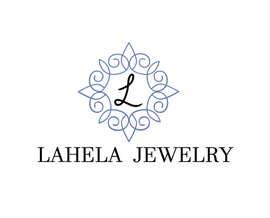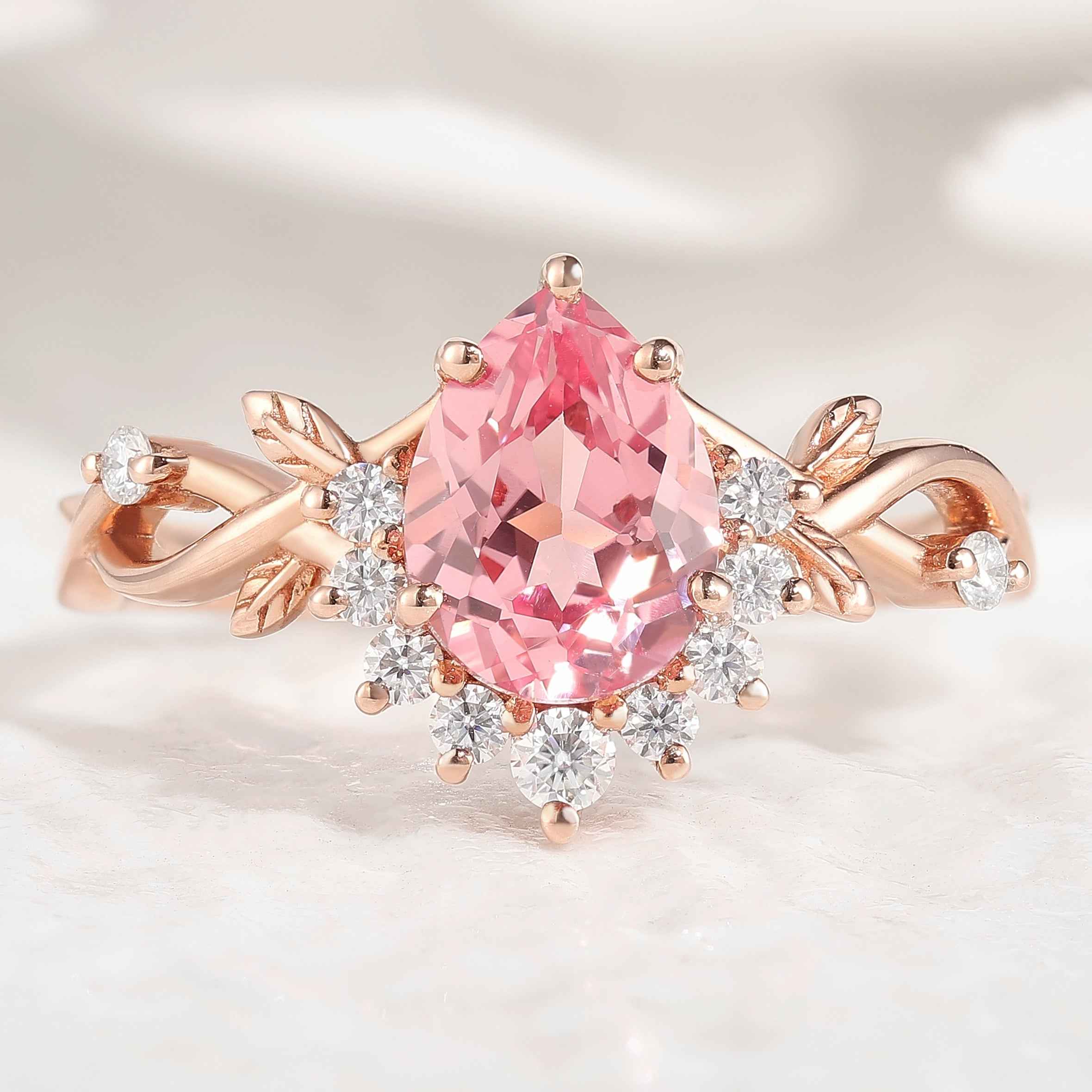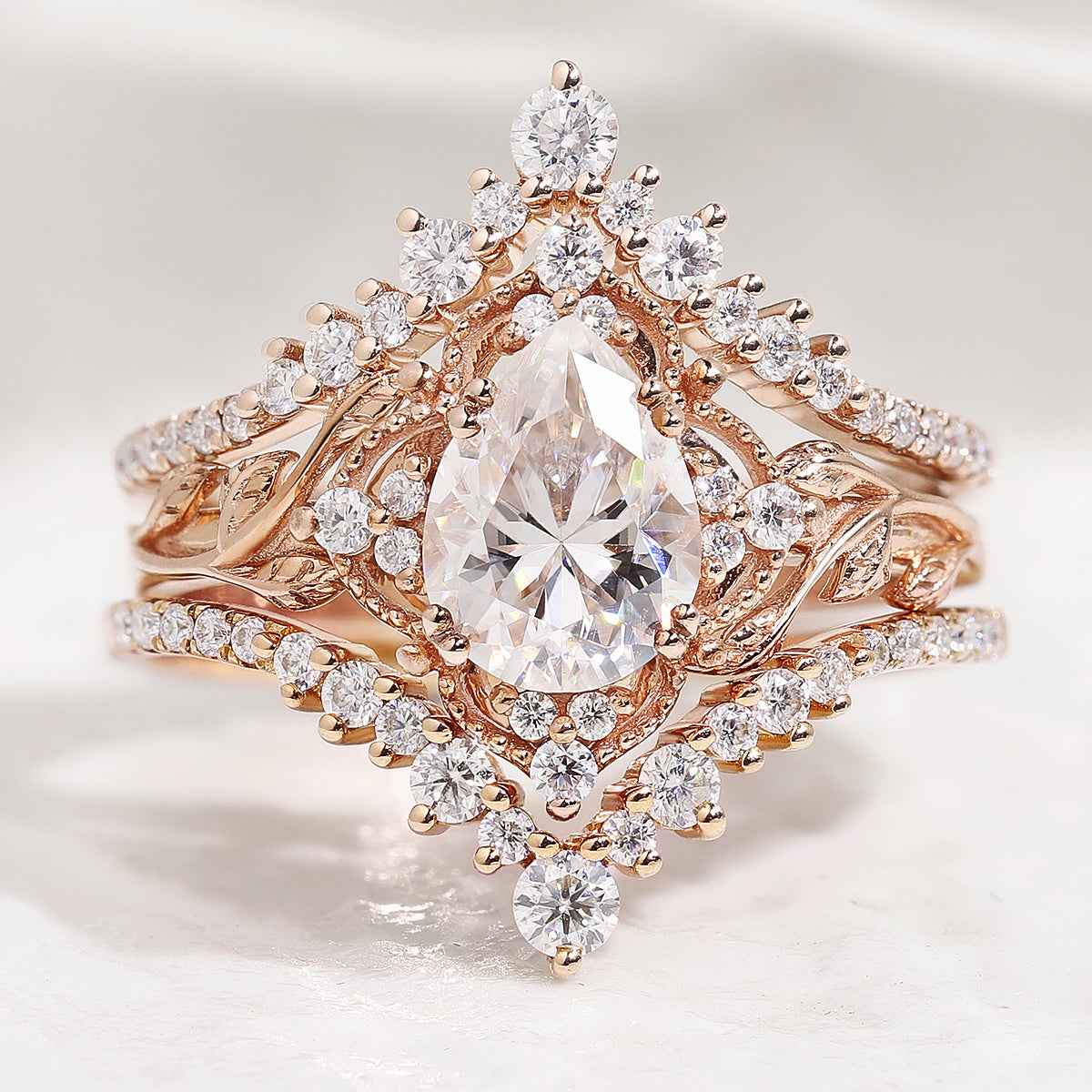Key Takeaway
What makes an engagement ring truly "ethical"? It's way more than just "conflict-free." It means looking at the whole picture: the impact of the stones and metal on people and the planet, and ensuring fair, safe work for the people who made it. Think traceable gems, lab-grown options, recycled metals, and jewelers who are open and honest.
Choosing an engagement ring is confusing enough without adding in ethical considerations. But, it does not have to be difficult to understand what makes jewelry "ethical." This is your "Ethical Jewelry 101," breaking down the key considerations so that you can select a beautiful ring that expresses not only your love but also caring about people and the planet.
An ethical engagement ring is a combination of factors covering the journey from the mine (or lab) to your finger. We need to look closely at the stone, the metal, the craftsmanship, and the company's overall approach.
1. The Heart of the Matter: Ethical Diamonds and Gemstones
The main stone in an engagement ring gets a lot of attention, and rightly so. The diamond industry especially has a troubled history, so understanding your options for ethical sourcing is key.
1.1 What "Conflict-Free" Really Means (and Doesn't)
You may have already heard of "conflict-free diamonds." Usually, this refers to the Kimberley Process Certification Scheme (KPCS), an effort to ensure that diamond sales are not supporting war. That's a vital starting point, but it is a narrow definition. It doesn't address human rights issues with diamond mining (e.g., child labor, dangerous working conditions, unequal pay) or with environmental destruction. An ethical diamond or gemstone actually considers the well-being of people and the planet, not just war funding.

1.2 Traceable Mined Diamonds & Ethical Gemstones
One way to aim for better practices with mined stones is traceability – knowing the specific mine or region it came from. Some places, like Canada, have stricter environmental and labor laws. Asking for the origin helps, though tracing tiny accent stones can still be tricky.
1.3 Lab-Grown Diamonds: A Mining-Free Option
Lab-grown diamonds offer another path. They're real diamonds – identical to mined ones in look and chemistry – but created in a controlled setting. Are lab-grown diamonds more ethical? From a mining perspective, yes. They completely bypass the concerns associated with traditional mining – no land disruption, water pollution, habitat loss, or potential for human rights abuses at the extraction stage. Keep in mind that they do use significant energy to produce, so looking for transparency about a lab's practices is still important when considering lab-grown gems.
1.4 The Greenest Choice: Vintage & Recycled Stones
Perhaps the most straightforward ethical option is using stones that already exist. Choosing a antique or vintage ring, or using a pre-owned gem in a new setting means no new mining is needed. It's the ultimate way to recycle and reduce the environmental impact of your ring's stone.

2. Choose Ethical Metals for Your Engagement Ring Band
Don't forget the metal band holding your beautiful stone. How precious metals, like gold and platinum, are mined really matters. Getting gold or platinum out of the ground often means clearing land, using toxic chemicals like cyanide or mercury that pollute water, and burning lots of fuel. Plus, workers might face dangerous conditions or unfair pay. In this way, picking sustainable metal options is a vital part of creating truly ethical engagement rings.
2.1 Recycled Metals is An Excellent Ethical Option
Using recycled gold or platinum is a fantastic, sustainable choice. These precious metals can be melted down and purified to be just like new, without losing any quality. Since it uses metal that's already out there, it avoids the need for new mining and all its negative impacts. Many ethical jewelers proudly use recycled metals. This is a simple way to make your ring much more eco-friendly.
2.3 Fairmined & Fair Trade Gold Support Artisanal Miners
While recycled metals avoid new mining, another ethical approach focuses on improving conditions within mining itself, particularly for artisanal and small-scale miners (ASM). These miners make up a large portion of the gold mining workforce but often face the worst conditions. Certifications like Fairmined gold and Fair Trade gold ensure that gold is sourced from responsible ASM organizations.
3. Ethical Craftsmanship and Fair Labor
Beyond the raw materials sourced ethically, where and how your ring is made is just as important as the materials. Ethical jewelry means considering the skilled people who actually craft the ring and ensuring they are treated fairly. This adds another layer of positive meaning to your special piece.

3.1 Fair Wages and Safe Workshops for the Makers
An ethical engagement ring should be crafted by skilled artisans who are treated fairly. This means:
- Fair Wages: Workers should receive a living wage that allows them to support themselves and their families.
- Safe Working Conditions: Workshops should be free from hazards, with proper safety equipment and procedures.
- No Child or Forced Labor: Absolutely essential ethical baseline.
3.2 Support Small & Local Jewelers
Often, smaller independent jewelers or local workshops have a better handle on their manufacturing process and can be more open about how their team is treated. Choosing these smaller businesses can be a good way to support ethical craftsmanship directly.
4. Transparency and Company Ethos in Responsible Jewelry
Finding an ethical ring also means looking at the company selling it. Are they open about where their materials come from and how things are made? Honesty and a real commitment to doing things right are key. An ethical company should be happy to share information about its sourcing. If they're vague about where their diamonds or gold come from, or how their rings are crafted, that could be a red flag. Look for detailed information on their website or ask questions directly.
4.1 Certifications & Affiliations
Various organizations aim to promote better practices in the industry. Look for affiliations or certifications like:
- Responsible Jewellery Council (RJC): An industry body that certifies members against a code of practice covering human rights, labor, environment, and business ethics throughout the supply chain.
- B Corp Certification: Certifies entire companies based on their social and environmental performance, accountability, and transparency across all operations, not just specific products.
- Fairmined or Fair Trade Certification: Specific to gold sourced from certified ASM operations.
An ethical jewelry certifications guide can be helpful, but remember certifications are just one piece of the puzzle; overall, company practice matters most.

4.2 Look for Genuine Brand Commitment
Does the company seem genuinely passionate about ethical practices, or is it just marketing talk? Look beyond just keywords and see if sustainability is woven into their core values. For example, brands like Lahela Jewelry often focus on artisan craftsmanship and sustainable practices, celebrating nature in their designs. They are deeply passionate about sourcing materials responsibly and striving for a positive impact on both people and the planet because it's fundamental to who they are. Look for jewelers where ethical sourcing is the foundation of their business model – this often reflects a deeper, genuine commitment.
5. How to Find Your Perfect Ethical Engagement Ring
Okay, you now understand the complex problems behind ethical engagement rings. But how do you really go about getting one? Here's a step-by-step guide to ethical jewelry for beginners aimed at engagement rings:
5.1 Ask Jewelers the Right Questions About Ethical Sourcing
You don't have to feel awkward. Any reputable jeweler committed to ethics should welcome your questions. When considering a purchase, you can inquire about what overall steps the company takes to ensure an ethical supply chain, or any documentation that can support their efforts.
5.2 Know What Terms & Certifications to Look For
Keep an eye out for key terms that indicate ethical practices:
- Recycled Gold / Recycled Platinum
- Lab-Grown Diamond / Lab-Created Gemstone
- Fairmined / Fair Trade Gold
- Canadian Diamonds / Specific Mine Origin (if traceable & verified)
- Antique / Vintage
- RJC Certified / B Corp Certified (as indicators of company practices)
5.3 Research Brands That Prioritize Ethics
Many jewelers now specialize in or strongly emphasize ethical and sustainable practices. Do your homework online:
- Check their "About Us," "Sustainability," or "Ethics" pages.
- Look for detailed information, not just vague claims.
- Read reviews, specifically searching for comments on ethics and transparency.
Knowing where to buy ethical engagement rings often involves finding brands that align with your specific ethical priorities.
5.4 Embrace Ethical Alternatives to Traditional Rings
Remember the strong ethical alternatives to traditional engagement rings:
- Lab-grown stones: Avoid mining impacts.
- Recycled metals: The most sustainable metal choice.
- Vintage/Antique rings: Give existing beauty a new life.
These options often provide clear ethical benefits.

6. Pick Your Ring, Show Your Values
Picking an engagement ring is personal. Choosing an ethical one makes that symbol of love even more meaningful, showing you care about people and the planet. It means thinking about where the stone and metal come from and how the ring was made. It might seem like a lot, but asking questions and making conscious choices makes a difference. You absolutely can find a beautiful ring that feels good inside and out, aligning perfectly with your values.
3 FAQs About Ethical Engagement Rings
Q1: Is recycled gold lower quality or less valuable?
A: Not at all. Gold is an element; it can be melted, purified, and recycled repeatedly without weakening its purity or quality. Recycled gold is exactly the same as mined gold in price and performance, so recycled gold rings are a perfect and eco-friendly choice.
Q2: Are ethical engagement rings more expensive?
A: They can be, but not always. Factors such as fair wages for miners and artisans, certification charges, and traceable high-quality materials can inflate the price. Lab-grown diamonds tend to be much lower in cost than comparable mined diamonds, however, which can bring the total ring cost down. Vintage or antique rings can also be lower-cost options.
Q3: Where do I start searching for an ethical ring?
A: First, determine your priorities (e.g., lab-grown diamond absolute, recycled metal preference, Fairmined gold). Second, research online brands that focus on ethical engagement rings and sustainable jewelry. See if they are transparent on their websites. Don't hesitate to pose specific questions!


